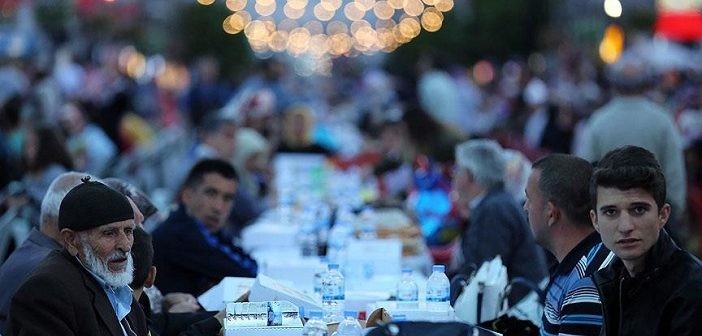
The Quran: The Word of Allah
What is quran definition? What does quran means in islam?
The root meaning of the Arabic word ‘Qur’an’ means both ‘recitation’ and ‘reading’ in English. In its inception, the revelation of Allah, may He be glorified and exalted, to the Prophet Muhammad (peace and blessings be upon him), was heard by the Muslims through oral recitation; it formed an essential part of both the liturgical and the spiritual acts of personal and communal worship in Islam. This is largely due to the fact that the Arabian society of that time was mainly an oral society. Later on, the revelation i.e. the Qur’an was written down and read from a text as well as being recited from memory. In the history of the Arabic language, the Qur’an was the first oral discourse to be described by its own text as a book. For the new Muslim it is pertinent to know that the Qur’an as the Word of God, -its vocabulary, its grammar, its law, its theology, and its ethics-is to be studied with the utmost reverence and diligence. The Arabic word for revelation is ‘wahy’. For the new Muslim it is also essential to know that the Qur’an as wahy has never been considered to be the consequence of the Prophet’s mind, but rather it is seen as a transmission, without any alteration of form or meaning, from God to the Prophet. Furthermore, it is through the recitation and the listening of the Qur’an, whether it is during the ritual prayer or a host of other contexts that, Muslims today chiefly continue to deal with the Holy Scripture. It is also true that majority of the contemporary Muslims do not understand the Arabic language and, therefore, use translations to understand the Noble Scripture. However, it is still important for New Muslims to acquaint themselvwes with the Qur’an by listening to the various Arabic recitations available through digital media over the Internet. One of the main reasons for listening to the Qur’an in Arabic is that, the revelation is truly spiritual in its original form and many Muslim people across the ages have attested to the instantaneous power and the value of the properly recited Qur’an. Moreover, it is a recommended by scholars of Islam for all Muslims, to learn at least the basic Arabic language and the Qurʾanic recitation rules, so that they are able to recite the Qur’an in its original language.
The Qur’an has 114 suras (chapters) and over 6,000 ayāt (verses). The chapters of the Qur’an vary greatly in length, for example; the shortest suras (103, 108, and 110) consist of three verses each, the longest sura (2) consists of 286 verses, and yet many more are medium sized. The length of verses also varies considerably. In many printed copies of the Qur’an, each chapter is identified as having been revealed either in the city of Mecca or in the city of Medina and is, accordingly, known as Meccan or Medinan. These designations relate to the first thirteen years of the Prophet’s life in Mecca and the last ten years of his prophethood in Medina, as mentioned in the above chapter. In most cases, the Meccan revelations deal with matters of faith and ethics, such as, the fundamentals of Islamic dogma and the principles of ethics; in contrast most of the Medinan revelations deal with the political, social and economic aspects of Muslim life in the light that during this period the Muslims had developed their own independent city in Medina. However, generally such distinction of theme is not always accurate, since, at times Medinan suras frequently take up the themes of faith and ethics, using them as a base for presenting legislative verses, whereas, the Meccan suras contain references to regarding the future events in Medina.
Generally, it can be said that the Qur’an contains numerous injunctions as well. For example, there are broad guidelines for family life, through rules set down for marriage and divorce (Qur’an 2:221, 229–237, 240–241; 4:3, 19–25, 35, 128–129; 5:5; 24:3, 32), for inheritance (Qur’an 2:180, 4:7–9, 11–12, 176), and for making transactions (Qur’an 2:282). In addition, in the Qur’an Muslims are also informed with regards to what is accepted as lawful food and unlawful food (Qur’an 2:168, 172–173; 5:3–5; 6:118–119, 121, 145–146; 16:114–116), decrees concerning punishments for certain offenses (Qur’an 5:38; 17:32; 24:2–9), and general guidelines for running a Muslim society (Qur’an 4:59; 42:38). Furthermore, there are also verses in the Qur’an, whereby, Allah, may He be glorified and exalted, insists that Muslims should treat parents kindly (Qur’an 17:23; 29:8; 31:14; 46:15), He promotes virtues like forbearance and repaying good for evil (Qur’an 23:96; 28:54; 41:34; 42:37, 40; 7:199), and forbids backbiting and slander (Qur’an 24:4, 6–9). The ultimate goal of all such injunctions is to create a God conscious society and individuals.
At this point it is also important for the new Muslim to know how the Qur’an was compiled. Accordingly, the compilation of the Qur’an occurred in three stages. The first stage occurred during the Prophet Muhammad’s (peace and blessings be upon him) lifetime and it included both text and structure, as we find it today. It is reported that when a revelation came to him from Allah, may He be glorified and exalted, it was devotedly memorized by the Muslims and some of these revelations were written down by designated scribes under the Prophet’s instructions. Since paper was not available, rudimentary parchment, thin flat stones, or animal shoulder bones were used. It is reported that the Prophet Muhammad (peace and blessings be upon him) recited, through memory, the whole Qur’an to the angel Gabriel before passing on, moreover, during the same time a number of his companions also recited the Qur’an to the Prophet Muhammad. This indicates that, both the text and the structure of the Qur’an, was well known through memorization. Today, the arrangement of the Qur’an follows the same arrangement that the Prophet Muhammad (peace and blessings be upon him), himself approved under the guidance of the Angel Gabriel. The second stage of the compilation of the Qur’an took place a year after the death of the Prophet in 633 CE, during the reign of the first caliph of Islam, Abu Bakr. Abu Bakr was advised that there was a need to have a written compilation of the Qur’an because many of those who had memorized the Qur’an had been martyred on the battlefield. Abu Bakr accepted the suggestion to prepare a compilation of the Qur’an that differed from the memorized version only in one respect; that of being written down on loose papers. This compilation became known as sahifa. The third stage of compiling the Qur’an took place during the rule of the third caliph of Islam, Uthman bin Affan (644–656 CE). This compilation transpired due to variations in the oral and the written copies of the Qur’an beginning to occur in the periphery of the Caliphate; thus, by using the sahifa, Caliph Uthman produced the definitive copy of the Qur’an (ṣuḥuf) that is read by all Muslims today. Copies of this written scripture were sent to all the major cities of the Islamic world so that they might serve as master copies for people to use as standard reference texts. Hence, both the text and structure of the Qur’an is sacrosanct.
The reciting of the Qur’an takes place throughout Muslim society the world over; it transpires in the everyday lives of Muslims globally. Various forms of recitation take place at different times and on different occasions, such as, during the performance of prayers, on the occasions of birth, death, holy days, festivals, marriage and illness etcetera. One of the most significant of these forms is the everyday usage of phrases, such as, ‘‘if God wills’’ (Insha’Allah), “what God wills” (Masha’Allah), or the even more widespread recitation of bismillah al-Rahman Al-Rahem (In the Name of God, the Most Merciful, the Most Compassionate) before eating, or initiating virtually any act. In addition there are many other examples of the Qurʾan being recited in Muslim society, such as, during prayers at the places of burial, while visiting the graves of the departed, the automatic recitation of the standard blessings after any mention of Muhammad or other prophets (peace and blessings be upon them all), the widespread use of prayer beads for the recitation of the divine names and other invocations found in the Holy Book. As a text, the Qur’an initially addresses the Prophet (peace and blessings be upon him), but at the same time, it also speaks to each of its reciter and listener. The impression is that the person reading or listening to the Word of Allah, may He be glorified and exalted, is being asked to both recognize and remember the truth. The reciting of the Qur’an and the understanding of it, should overtime, lead the new Muslim to form a relationship of the lifelong process of familiarization and recollection, between the experiences of one’s own life and that of the corresponding lessons and insights conveyed to one by the verses of the Qur’an. Perhaps, this is the reason that some sages of Islam have said, “Recite and read the Qur’an as it is the mirror of your soul and seek to understand each verse as though it were being revealed directly to you.”
At this juncture it is vital to highlight to the new Muslim and caution him or her from presuming that any independent and highly individualized scriptural interpretation, based exclusively on foreign language translations, (which in the contemporary world is taken for granted), is acceptable within the scholarship of Islam. In fact, the scholarly understanding of the Qur’an has for centuries been the preserve of the ulama; being a part of this intellectual scholarship, demands mastery in a number of related preparatory and interpretive religious sciences, requiring years of preparation. These essential contextual disciplines include; Qur’anic grammar and syntax, Arabic lexicography and philology, Qur’anic rhetoric (balagha), Hadith, history (sirah, tarikh, and qisas al-anbiya), literatures concerning the historical contexts of the Qur’anic revelations (asbab al-nuzul and tafsir), dialectical theology (ilm al-kalam) and jurisprudence (fiqh). Thus, the studying of the Qur’an and its interpretation has always been mediated by the traditional religious disciplines, which have their origins in the essential teachings of the Qur’an and Hadith. This leads us to the fact that the symbiotic relationship between the Qur’an and the thousands of Prophetic teachings (Sunnah) recorded in the collections of Hadith continues to have an importance in the everyday lives of Muslims.
Source: Islam For New Muslims An Educational Guide,Assoc. Prof. Amjad M. Hussain, Erkam Publications
Reverting to Islam

What is Islam?









